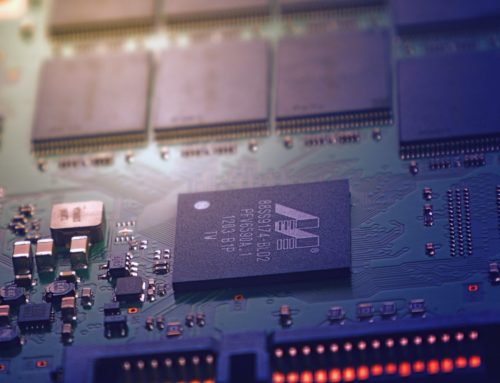In a digital age where cyber threats continue to loom over the healthcare industry, the Department of Health and Human Services (HHS) has once again emerged as the guardian of American hospitals. With a steadfast determination to shield the nation’s healthcare system from the clutches of ransomware attacks, the HHS has launched a groundbreaking initiative – the ‘Digiheals’ project. Equipped with cutting-edge technologies and a staunch commitment to fortify vulnerabilities, this ambitious endeavor aims to usher in a new era of protection for US hospitals. In an ever-evolving landscape of cybercrime, the HHS stands unwavering, ready to employ its digital arsenal to safeguard the heartbeats of our nation’s healthcare infrastructure.
Table of Contents
- 1. A Pioneering Initiative: HHS Steps Up Efforts to Safeguard US Hospitals from Ransomware Attacks
- 2. ‘Digiheals’: A Digital Shield for Healthcare Security unveiled by HHS to Combat Ransomware Threats
- 3. Revolutionizing the Healthcare Landscape: HHS’s Novel Project Aims to Bolster Hospital Cybersecurity
- 4. Battling the Ransomware Epidemic: HHS Unveils ‘Digiheals’ Project to Safeguard US Hospitals
- 5. Safeguarding Patient Care: HHS Launches Groundbreaking Project to Thwart Ransomware Attacks in Hospitals
- 6. A Digital Defense Mechanism: HHS Equips US Hospitals with ‘Digiheals’ to Counter Ransomware Threats
- 7. Innovative Solutions for Healthcare Security: HHS Initiates ‘Digiheals’ Project to Protect US Hospitals from Ransomware
- 8. Spearheading Cybersecurity in Healthcare: HHS Introduces ‘Digiheals’ to Fortify US Hospitals Against Ransomware
- Q&A
1. A Pioneering Initiative: HHS Steps Up Efforts to Safeguard US Hospitals from Ransomware Attacks
Ransomware attacks have emerged as a significant threat to the healthcare industry in recent years, with hospitals bearing the brunt of these cyber assaults. To combat this menace, the U.S. Department of Health and Human Services (HHS) has taken a pioneering initiative to ramp up security measures and protect hospitals across the nation. With an aim to fortify the resilience of healthcare infrastructure, HHS is stepping up its efforts in warding off ransomware attacks, ensuring patient safety remains uncompromised.
The HHS initiative encompasses a comprehensive strategy to safeguard hospitals from ransomware attacks, including:
- Enhanced cybersecurity training programs for healthcare professionals and IT staff to ensure robust incident response capabilities.
- Implementation of advanced security protocols and technologies, including multi-factor authentication and encryption, to bolster defenses against cyber threats.
- Regular vulnerability assessments and penetration testing to identify potential weak points in hospital systems and address them proactively.
- Establishment of a dedicated 24/7 incident response team to promptly mitigate the impact of any attempted cyber intrusion.
These are just a few of the measures being implemented by HHS to combat ransomware attacks. With hospitals as prime targets for hackers seeking to exploit critical patient data, this pioneering initiative holds promise in elevating the cybersecurity preparedness of the entire healthcare industry.
2. ‘Digiheals’: A Digital Shield for Healthcare Security unveiled by HHS to Combat Ransomware Threats
The Department of Health and Human Services (HHS) has taken a significant step towards fortifying the healthcare industry against the growing menace of ransomware attacks. Introducing ‘Digiheals’ – a cutting-edge digital shield designed specifically to combat these threats and protect healthcare organizations from debilitating cyber-attacks.
With the number of ransomware incidents skyrocketing in recent years, ‘Digiheals’ comes as a beacon of hope for healthcare institutions struggling to safeguard their sensitive data. This innovative solution employs an array of advanced technologies, including behavior-based analysis, real-time monitoring, and AI-powered threat detection, to ensure proactive defense against malicious actors. By identifying and neutralizing cyber threats before they infiltrate the system, ‘Digiheals’ eliminates the risk of data encryption, operational disruption, and potential patient harm, giving healthcare providers the upper hand in their battle against ransomware.
- Unleashes the power of cutting-edge technologies to provide a comprehensive defense against ransomware attacks
- Utilizes behavior-based analysis and AI-powered threat detection for proactive security measures
- Enables real-time monitoring to swiftly identify and neutralize cyber threats
- Ensures protection of sensitive healthcare data and minimizes the risk of operational disruption
With ‘Digiheals’ as their digital stronghold, healthcare organizations can breathe a sigh of relief and focus on what truly matters – delivering quality care to patients while upholding the integrity and confidentiality of their data.
3. Revolutionizing the Healthcare Landscape: HHS’s Novel Project Aims to Bolster Hospital Cybersecurity
In an era when cyber threats loom larger than ever, the US Department of Health and Human Services (HHS) is taking a pioneering leap to safeguard our healthcare institutions from cyberattacks. Spearheading this crucial mission is HHS’s groundbreaking project that aims to revolutionize the healthcare landscape by enhancing hospital cybersecurity.
Powered by cutting-edge technologies and innovative strategies, HHS’s project aspires to build an impregnable shield against the ever-evolving threats in the digital realm. Here are some groundbreaking elements of this novel initiative:
- Advanced Threat Detection: The project leverages state-of-the-art algorithms and machine learning to identify and neutralize cyber threats, ensuring hospitals can stay one step ahead of malicious actors.
- Proactive Vulnerability Management: HHS’s project deploys regular scans and advanced penetration testing to detect and fix vulnerabilities before they can be exploited. This proactive approach mitigates potential breaches and strengthens hospitals’ cyber defenses.
- Real-time Incident Response: With an interconnected network of cybersecurity experts, HHS’s project offers real-time incident response and assistance to hospitals in the event of a cyber attack, minimizing the impact and restoring services more rapidly.
4. Battling the Ransomware Epidemic: HHS Unveils ‘Digiheals’ Project to Safeguard US Hospitals
The Department of Health and Human Services (HHS) has taken a significant step in protecting US hospitals from the growing threat of ransomware attacks with its groundbreaking initiative, the ‘Digiheals’ project. As the ransomware epidemic continues to pose a grave risk to the healthcare industry, this innovative approach aims to fortify hospital systems and ensure their uninterrupted operations.
With ‘Digiheals,’ HHS plans to employ the following measures to combat ransomware:
- Advanced Threat Detection and Response: The project will implement cutting-edge technologies to identify and neutralize potential ransomware attacks, ensuring immediate responses to any suspicious activity.
- Enhanced Cybersecurity Training: HHS will prioritize training hospital staff to recognize and combat phishing attempts and other cyber threats effectively, improving the overall security culture within healthcare organizations.
- Secure Backup Solutions: ‘Digiheals’ will emphasize the establishment of robust data backup systems to safeguard critical patient information, ensuring hospitals can quickly recover from any potential ransomware incidents.
This crucial initiative by HHS signifies a significant commitment to safeguarding the integrity of US hospitals and protecting patient data from malicious attacks. By joining forces with healthcare organizations, ‘Digiheals’ aims to prevent the disruption of vital medical services and maintain trust in the healthcare system amid the growing ransomware threat.
5. Safeguarding Patient Care: HHS Launches Groundbreaking Project to Thwart Ransomware Attacks in Hospitals
Ransomware attacks have become a growing concern in the healthcare industry, putting patient care at risk. In a pioneering initiative, the Department of Health and Human Services (HHS) has introduced a groundbreaking project aimed at combating these cyber threats and safeguarding the well-being of patients in hospitals. The project, driven by cutting-edge technology and extensive collaboration, is set to revolutionize the way healthcare organizations defend against ransomware attacks.
The HHS-led endeavor brings together a consortium of experts, including cybersecurity specialists, healthcare professionals, and government agencies, working hand in hand to develop robust strategies against ransomware. By pooling their knowledge and leveraging state-of-the-art tools, this collaborative project aims to bolster the defenses of hospitals, ensuring that patient care remains uninterrupted and secure. Through rigorous testing and ongoing evaluations, the project seeks to identify vulnerabilities within hospital systems and provide tailored solutions to mitigate risks. Additionally, a comprehensive training program will be implemented to educate healthcare staff on recognizing and responding to potential cyber threats, empowering them with the skills needed to keep patients safe.
6. A Digital Defense Mechanism: HHS Equips US Hospitals with ‘Digiheals’ to Counter Ransomware Threats
Ransomware attacks have become a growing concern for hospitals across the United States, leaving healthcare organizations vulnerable to data breaches and disruption of critical services. To combat this ever-evolving threat, the Department of Health and Human Services (HHS) has introduced a groundbreaking defense mechanism called ‘Digiheals’.
Equipped with cutting-edge technology, Digiheals offer:
- Real-time threat detection: By continuously monitoring network traffic and analyzing patterns, Digiheals can detect ransomware attacks in their early stages, allowing hospitals to take immediate action.
- Network segmentation: Digiheals create virtual partitions within the hospital’s network, ensuring that if one area is compromised, the attack is contained and unable to spread to other critical systems.
- Data encryption: To safeguard patient information, Digiheals encrypt data at rest and in transit, making it significantly more difficult for hackers to access valuable healthcare records.
With Digiheals, hospitals can expect:
- Increased resilience against ransomware attacks: The advanced threat detection capabilities of Digiheals enable hospitals to identify and mitigate potential breaches quickly, minimizing the impact on patient care and operations.
- Enhanced patient trust: By taking proactive measures to protect sensitive data, hospitals can build trust and confidence among patients, demonstrating their commitment to maintaining the highest standards of cybersecurity.
- Reduced financial losses: Ransomware attacks can incur significant financial costs for hospitals, including ransom payments and downtime. Digiheals’ robust defense strategy reduces the risk of falling victim to such attacks, saving hospitals valuable resources.
7. Innovative Solutions for Healthcare Security: HHS Initiates ‘Digiheals’ Project to Protect US Hospitals from Ransomware
In a bid to safeguard healthcare institutions across the United States from the growing threat of ransomware attacks, the Department of Health and Human Services (HHS) has unveiled an ambitious new initiative called ‘Digiheals.’ With an increasing number of cybercriminals targeting hospitals in recent years, this groundbreaking project aims to fortify the cybersecurity defenses of healthcare organizations nationwide.
The ‘Digiheals’ project, spearheaded by the HHS, focuses on implementing robust countermeasures to prevent ransomware attacks and mitigate their impact. Here are some of the innovative solutions being introduced:
- Advanced Threat Detection Technology: By leveraging cutting-edge AI algorithms, the ‘Digiheals’ initiative incorporates state-of-the-art threat detection systems capable of identifying and neutralizing ransomware attacks before they can cause significant harm.
- Enhanced Staff Training and Education: Recognizing the critical role employees play in maintaining cybersecurity, the HHS is collaborating with leading experts to develop comprehensive training programs. These initiatives empower healthcare personnel with the necessary knowledge and skills to identify and respond to potential threats effectively.
- Secure Data Backup and Recovery: As a preventative measure against ransomware, ‘Digiheals’ places a strong emphasis on implementing robust data backup and recovery systems. This ensures that even in the face of a successful attack, hospitals can restore their systems quickly and minimize disruption to patient care.
- Collaborative Threat Intelligence Sharing: The ‘Digiheals’ project encourages healthcare institutions to exchange vital information regarding emerging threats and attack patterns. By fostering a collaborative approach, hospitals can strengthen their collective defense against ransomware and proactively develop effective countermeasures.
Through the ‘Digiheals’ project, the HHS aims to establish a national framework for healthcare cybersecurity, fostering a secure and resilient environment for hospitals and healthcare providers. By embracing innovative strategies and technologies, this groundbreaking initiative represents a significant step towards defending our healthcare system against the ever-evolving challenges posed by ransomware attacks.
8. Spearheading Cybersecurity in Healthcare: HHS Introduces ‘Digiheals’ to Fortify US Hospitals Against Ransomware
With the rising threat of ransomware attacks targeting healthcare institutions, the United States Department of Health and Human Services (HHS) has taken a proactive step towards bolstering cybersecurity in hospitals across the nation. Their latest initiative, known as ‘Digiheals’, aims to provide a robust defense against malicious cyber-attacks that hold patient data hostage.
Under the Digiheals program, the HHS will actively collaborate with hospitals to implement state-of-the-art cybersecurity solutions, strengthening their resilience against ransomware attacks. Some key features of the program include:
- Comprehensive Cybersecurity Assessments: Digiheals begins with a thorough evaluation of existing cybersecurity infrastructure in hospitals, identifying vulnerabilities and potential entry points for cybercriminals.
- Advanced Threat Detection: The program incorporates cutting-edge technologies to monitor and detect any suspicious activities within hospital networks, enabling swift response and mitigation against potential threats.
- Continuous Security Monitoring: Digiheals emphasizes real-time monitoring and analysis of network traffic, ensuring immediate detection of any anomalous behavior that could indicate a ransomware attack.
- Secure Data Backup and Recovery: Robust data backup mechanisms are established to maintain accessible copies of critical patient information, preventing ransomware attacks from impeding vital healthcare services.
Digiheals envisions creating a unified front against the ever-evolving landscape of cyber threats, empowering hospitals to safeguard patient data and ensure uninterrupted healthcare delivery. By fostering collaboration and providing cutting-edge cybersecurity measures, the HHS aims to fortify the healthcare sector, keeping sensitive medical information out of the reach of hackers.
In a world where the realms of technology and healthcare converge, where innovation holds the key to a brighter and safer future, the launch of the ‘Digiheals’ project is set to be a game-changer in the realm of hospital cybersecurity. With its lofty ambitions and a steadfast commitment to safeguarding the integrity of our healthcare system, the Department of Health and Human Services (HHS) is poised to revolutionize the way hospitals defend themselves against the ever-looming threat of ransomware.
With each passing day, the digital landscape becomes more treacherous, as malicious actors seek to exploit vulnerabilities and hold critical healthcare facilities hostage. Acknowledging this alarming reality, the HHS has taken a monumental leap forward by unleashing the potent force of technology to protect our hospitals, the lifeblood of our nation’s well-being.
Enter ‘Digiheals’ – a visionary initiative that combines cutting-edge technologies with the indomitable spirit of collaboration. Armed with the power of artificial intelligence, data analysis, and cybersecurity expertise, this project holds the promise of repelling ransomware attacks like never before. By fostering a unique partnership between hospitals, tech companies, and cybersecurity specialists, ‘Digiheals’ offers a comprehensive defense framework, tailored to each hospital’s distinct needs and vulnerabilities.
Through rigorous monitoring and analysis, ‘Digiheals’ will stand as a digital guardian, tirelessly scanning hospital networks for any signs of malicious activities. Be it the subtle movements of a hidden threat or the audacious attempts of encrypted ransomware, the project’s robust algorithms will be the gatekeepers, standing vigilant to protect vital healthcare facilities across the United States.
But it is not just the formidable technological arsenal that sets ‘Digiheals’ apart. Its true strength lies in its collaborative spirit, the collective wisdom that arises when diverse minds converge with a common purpose. With this project, the HHS seeks to bridge the gap between healthcare providers, cybersecurity professionals, and the world of technology. By fostering an ecosystem of knowledge-sharing and proactive defense mechanisms, ‘Digiheals’ heralds a new era of collaborative resilience against the ever-evolving ransomware menace.
As we embark on this daring journey towards a safer digital future for our hospitals, it is essential to remember that the battle against ransomware is not a realm conquered overnight. It demands unwavering dedication, relentless innovation, and a commitment to standing tall against the forces of digital malevolence. The ‘Digiheals’ project brings together these vital ingredients, forging a path towards a stronger, more secure healthcare landscape.
In the very heart of this transformative endeavor lies hope – hope for hospitals free from the perpetual threat of ransomware, hope for patients receiving uninterrupted and uncompromised care, and hope for a world where technology serves as a shield rather than a weapon. Through ‘Digiheals’, the HHS plants the seeds of possibility, inviting us all to imagine a reality where healthcare facilities flourish, untethered by the constraints of cyber threats.
So let us embark on this journey, hand in hand with the HHS and the pioneering spirit of ‘Digiheals’. Together, we shall redefine the boundaries of cybersecurity, fortifying our hospitals against the onslaught of ransomware and paving the way for a future where our healthcare system remains steadfast, always ready to heal, to protect, and to serve.




Leave A Comment